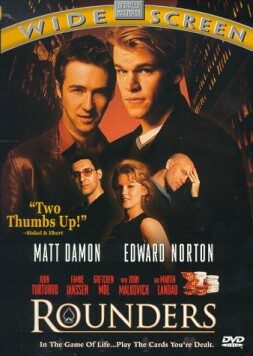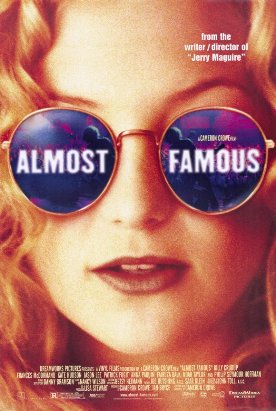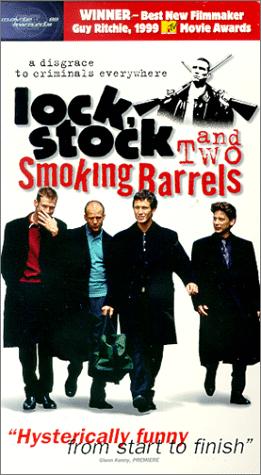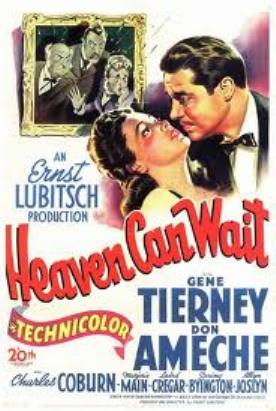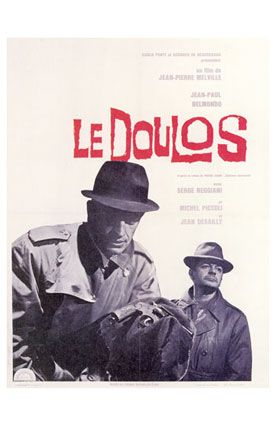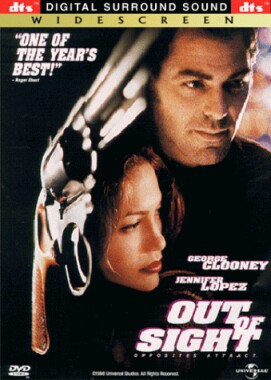Rounders
Rounders directed by John Dahl is wish-fulfilment fantasy of a
different sort from that of Let’s Talk About Sex. This is the fantasy of
cool, and it is paradoxical that the hottest new stars seem to compete to
out-cool each other. Needless to say, this loving cultivation of image has
little or nothing to do with acting or drama. Just like Good Will
Hunting, Rounders presents Matt Damon as the boy genius because that
is the attitude he wants to strike. Somebody writes a script to make him sound
like a smart guy, so he gets to say the lines and look like a smart guy. And a
cool guy. He is a guy’s guy but also
someone who can make the heart of the beauteous Jo (Gretchen Mol) go
pittapat — even after she has dumped him for going back to his guyish
poker-playing. Damon is the cinematic equivalent of a super- model, only instead
of putting on expensive clothes, he puts on expensive lines in order to make
himself look sexy.
There must be a lot of people who want that from the movies, which they
peruse as other people idly page through a fashion magazine. To me it seems
merely self-indulgent — not only on Damon’s part and not only on the part of
John Dahl, whose Red Rock West and The Last Seduction showed real
talent, but self-indulgent on the part of everyone involved, right down to John
Malkovich as “Teddy
KGB” and his hilariously over-the-top
Russian accent. The endless voiceovers also tell us that the point of the
picture is merely to present for our admiration Mr Damon’s multifaceted
sagacity. “Listen.
Here’s the
thing.” These are the opening words of
the picture, and right away you know you’re going to be relentlessly bombarded
with the kind of shallow profundities that call themselves street smarts.
“If you
can’t spot the sucker in your first
half hour at the table, then you are the
sucker.”
All the while we are watching his character, Mike McDermott, collecting the
whole of his stash and walking those familiarly mean streets of New York to a
big poker game for no particular reason except that the film has to begin with
his losing his whole stash ($30,000) to Teddy KGB, which of course sets up the
climactic rematch. After his initial loss, Mike quits and goes to work as a
delivery boy for his gambling buddy Joey Knish (John Turturro) while trying to
work his way through law school. A menial job, he says in yet another voiceover,
is “for rounders [i.e. professional
card players] who forget the cardinal rule: always leave yourself an
out.” But then Mikey impresses his
law-school professor (Martin Landau) and the judges and lawyers at his amateur
poker game with his knowledge of the cards each is holding. It is hard for him
to resist the “open invitation to lay
with these lambs.” He says he is
retired. “I’ve made promises. .
.I’m just a law student
now.”
But not for long. When his best friend, Worm (Edward Norton), gets out of
jail after serving time for trying to fix a basketball game, Mike figures he
owes him one for not ratting him out. So he consents to help Worm run a poker
scam on some rich college kids. This leads to some more hustles, which leads to
the kind of indebtedness that movie gamblers always fall into — the kind
that involves very large and thuggish fellows demanding repayment of principal
and super-usurious rates of interest by Tuesday or death and dismemberment (not
necessarily in that order) will follow — which leads to the big stakes game
with Teddy KGB. No prizes for guessing what happens there.
Almost the only interesting thing about this film is that part of its point
is to persuade us of the respectability of Mike’s career choice. Of course it is
cool to be a bad boy. One quite sees that. But this bad boy continues to try to
convince us that he’s a good boy. When Jo plays the time-honored female role and
attempts to break him of his addiction, he refuses to be ashamed of it:
“Why does this still seem like
gambling to you?” he says. “Why do the same five players sit down in the World
Series of poker every year? Is it because
they’re the five luckiest guys in the
country?” Of course not! They’re just
very clever guys like him, earning an honest living by separating suckers from
their money. Martin Landau’s Professor Petrovsky appears to agree, and compares
his own situation, as a man who disappointed his family by giving up rabbinical
studies for the law, with Mike’s: “The last thing I took away from the Yeshiva
was this: we can’t run from what we
are. Our destiny chooses us.”
Of course, being a man of destiny is kind of cool too.
Discover more from James Bowman
Subscribe to get the latest posts to your email.

